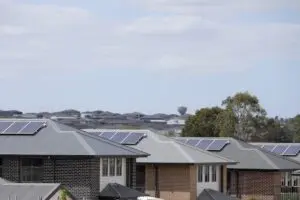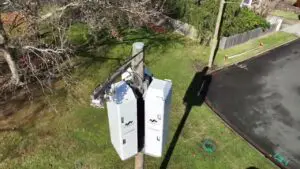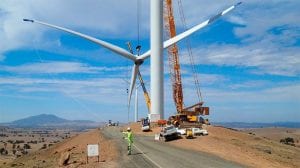Australian telecom giant Telstra is now free to launch its challenge to the country’s big energy incumbents after the regulator last week announced that the company had been granted a licence to offer energy services to its 13 million phone and internet customers.
Telstra is just one of a number of big players that will seize the opportunities from the disruption to traditional business models brought about by the switch to renewables and storage, and smart software. And it’s aim is to be a top five retailer.
Oil giant Shell has already entered the market through the purchase of ERM, and Italian energy giant Enel Green Power is also seeking a retail licence to combine its large-scale renewable assets with offerings to industrial and commercial customers.
Telstra, whose successful licence application was announced by the Australian Energy Regulator late last week, is likely to cover all bases from the households to big industrial users.
Its first port of call will be the 13 million accounts for its phone and internet services, where it will seek to leverage its dominant position in the communications space to eat into the pie of traditional retailers.
Interestingly, Telstra was reportedly interested in buying the Powershop retail licence from Meridian Energy, the New Zealand utility that is seeking offers for its Australia assets.
Powershop’s first CEO was Ben Burge, now a key player in Telstra’s energy business, but Telstra reportedly withdrew from the process a week or so go.
“Our goal is to become a top 5 energy retailer by 2025, thereby contributing to Telstra’s overall T25 growth strategy,” Burge said in an emailed statement to RenewEconomy. He said further details would be revealed at the upcoming investor day.
The AER has awarded Telstra electricity and gas retail licences in New South Wales, South East Queensland and South Australia. It is still waiting on a separate application in Victoria with the local regulator.
“We know the responsibility that comes with this and we are motivated to help Australian families save more money, waste less time and reduce their household’s carbon footprints; our energy plans will be 100% carbon neutral at no extra cost,” Burge said.
“Retailing energy is a natural extension of our involvement and investment in the Australian energy sector over several years now. This new chapter will help us to accelerate the penetration of renewable energy, which is a key element of our overall climate ambition.”
As we reported in June, the convergence between telcos and utilities has been predicted for some time, and is now being made easier by the massive growth in “behind the meter” technologies such as rooftop solar, battery storage, demand management, and electric vehicles.
It no longer matters that a big retailer needs to have big generators. The key is in customer relations and “aggregation”, and Telstra has already locked in contracts with at least two wind farms to on-sell green power to customers.
The big utilities have seen the telcos – along with other potential “aggregators and competitors such as Google, Amazon and Tesla – coming, and are now moving into the telecommunications space themselves as they try to figure out what the new business landscape will look like.
Last year, AGL Energy acquired regional internet service provider Southern Phone, expanding the energy company’s presence into the communications space, after abandoning a plan to takeover fibre network operator Vocus Group. Origin is also offering internet plans alongside its electricity and gas services.










